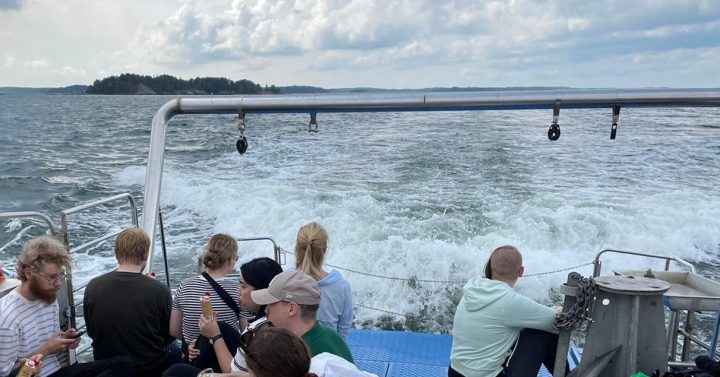From classroom to coastline – Why students should experience a summer school like Baltic Sea BioMed
What if your degree could take you beyond the classroom – into a world of hands-on discovery and cultural exchange? Summer schools and exchange programmes at the University of Turku offer just that. After joining the Baltic Sea BioMed Summer School in 2024, let me share how stepping into a new environment shaped both my academic journey and personal life.
It was during my summer internship in 2024 that I first stumbled upon the Baltic Sea BioMed Summer School. What captivated me most was the idea of an immersive learning experience set on a remote island—almost like something out of a novel, right? But this was no fiction; it was real. By the end of June, I received my acceptance to the summer school, and the anticipation built all summer as I waited to embark on this extraordinary adventure.
From Turku to Seili: the start of an epic learning adventure
The adventure began with a scenic boat journey across the Baltic Sea, taking us from Turku to the enchanting Seili Island. On a crisp August morning, my friends and I set off from the student village, catching a bus to Itäinen Rantakatu, where our boat awaited. We boarded alongside fellow students and faculty from partner universities, buzzing with excitement. That’s where I met Hassan from the University of Eastern Finland—a connection that quickly blossomed into a lasting friendship we still cherish.
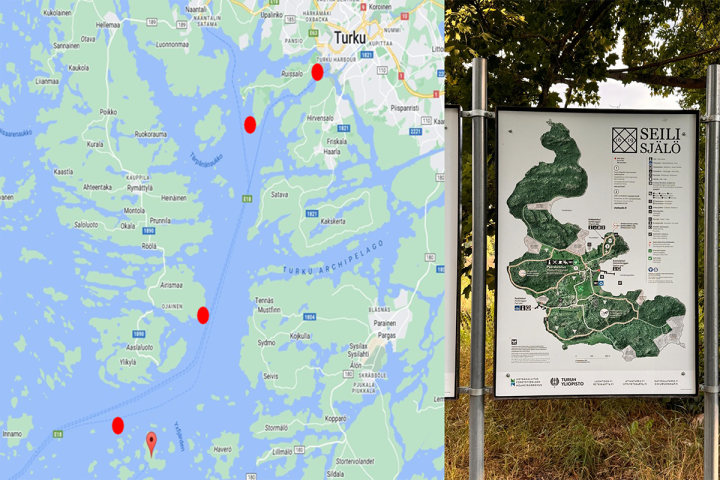
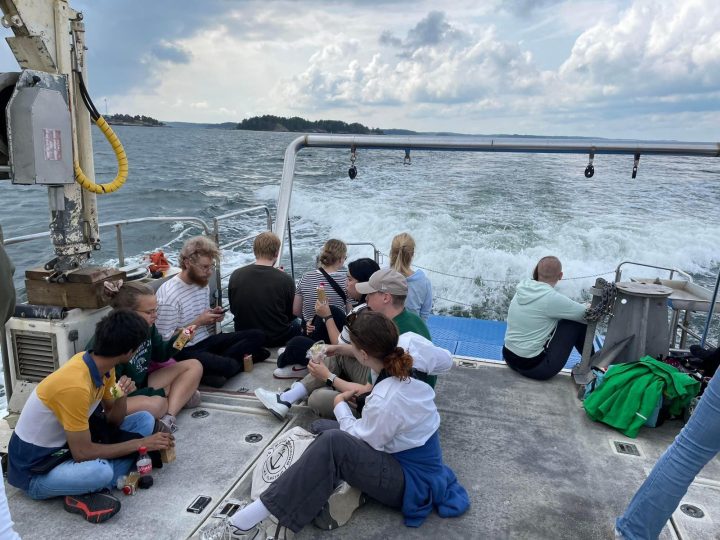
Our voyage to Seili included three stops along the way for hands-on sampling exercises. The crew guided us on how to collect water samples, destined for labs to assess water quality and pH levels. They introduced us to tools such as the Secchi disk for measuring water clarity and a net for gathering plankton and identifying potential blue algae. Every part of this process was new to me, but the crew was incredibly patient, answering our many questions with enthusiasm and expertise.
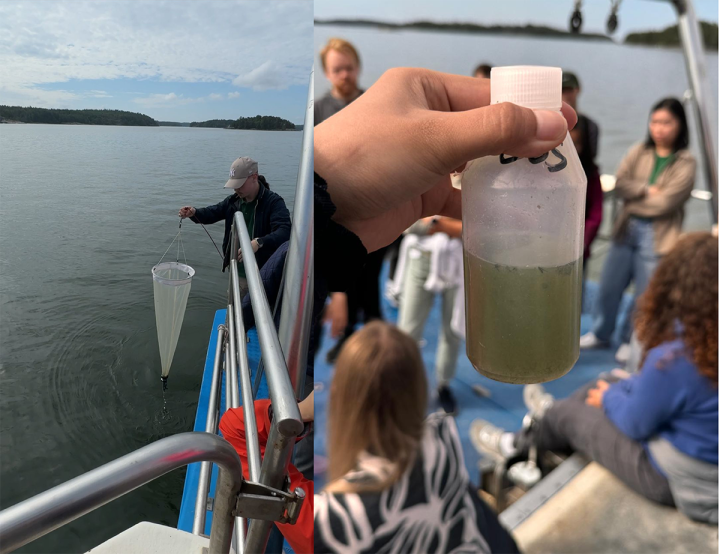
First impressions and new friendships on Seili Island
Arriving on Seili Island, I had a feeling these would be some of the most unforgettable days of my life. Our group was led to our shared accommodation, where over 20 students would be spending the week together. (Spoiler: by the end of that first day, we were far from strangers!) After settling in, we enjoyed lunch and an orientation session detailing the exciting programme ahead.
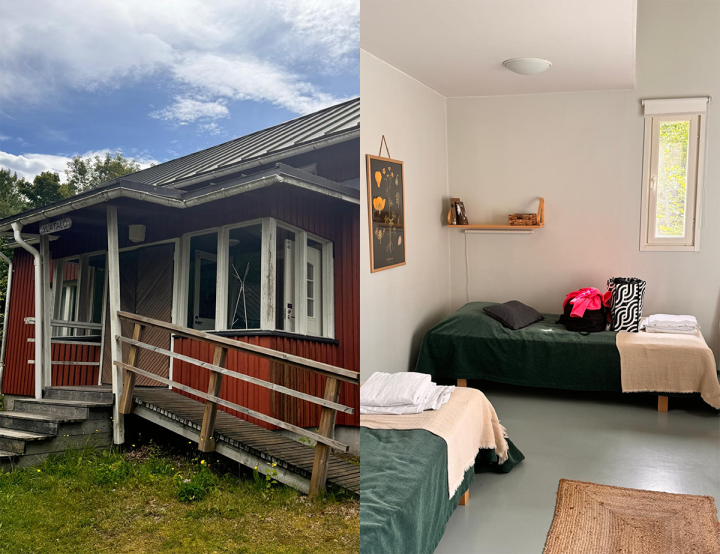
The following days were a whirlwind of assignments and preparatory readings, but we still found time to explore the island’s captivating history. Seili, though small, holds stories dating back to the 1600s. Once home to a leper hospital and later a mental asylum, the Seili church and its surrounding graveyard still echo the lives of those who sought refuge there. The island continued to care for the mentally ill until the 1960s, when the former asylum was transformed into the Archipelago Research Institute, part of the University of Turku’s Centre for Environmental Research.
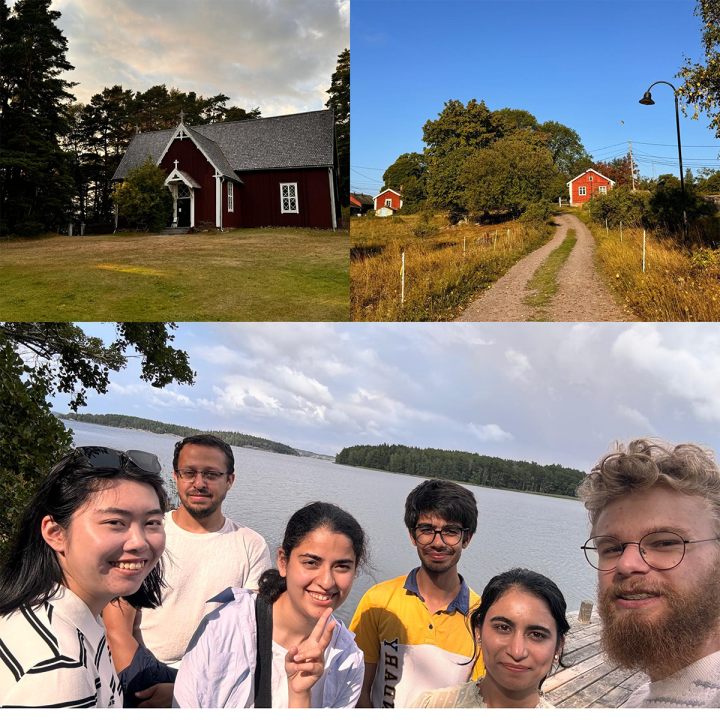
Exploring the intersection of science and society
During the programme, we participated in lectures and labs exploring subjects like human drug metabolism and its environmental impact, with a particular focus on the Baltic Sea. Sessions on topics such as planetary health and environmental ethics, led by experts like Ulrik Kihlbom from Karolinska Institutet, encouraged participants to consider the broader societal implications of their research. One participant, Ramish, expressed her excitement: “The programme was beyond exciting! I gained new insights into the environmental challenges we face and how my background in biomedical sciences can make a difference.”
BSBM-24 wasn’t just about lectures—it was a fully immersive experience. Students engaged in hands-on labs, analysing ecological data and exploring the effects of pollutants on marine life. Group activities enabled us to investigate real-world environmental issues, like the persistence of pharmaceuticals in aquatic systems, highlighting the importance of interdisciplinary approaches.
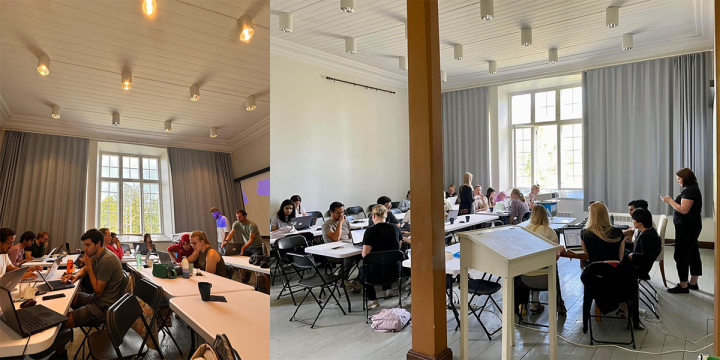
A highlight of the programme was the collaborative Escape Room challenge, designed to stimulate critical thinking and teamwork. Beyond the science, we also connected with industry professionals during a career development session, providing us with insights into potential career paths in biomedical and environmental fields. These unique activities helped build a strong sense of community, as participants from diverse academic backgrounds came together to share knowledge and ideas.
Inspiring stories and lifelong friendships
Personal stories and insights enriched the experience. “This programme was incredibly inspiring!” remarked Hassan, a participant from the University of Eastern Finland. “It went beyond academics; it was about connecting with others who are equally passionate about creating change.” Quotes like these capture the essential human connection that makes summer schools a unique space for building lifelong friendships and fostering professional growth.
As my journey with the Baltic Sea BioMed Summer School came to an end, I left not only with new knowledge but also with unforgettable memories, friendships, and a fresh perspective. If you’re a student looking to expand your horizons, learn beyond the classroom, and immerse yourself in a unique environment, consider applying for an exchange programme. It’s an adventure that will shape your studies—and your life—in ways you never imagined. So, take the leap and see where it leads you!
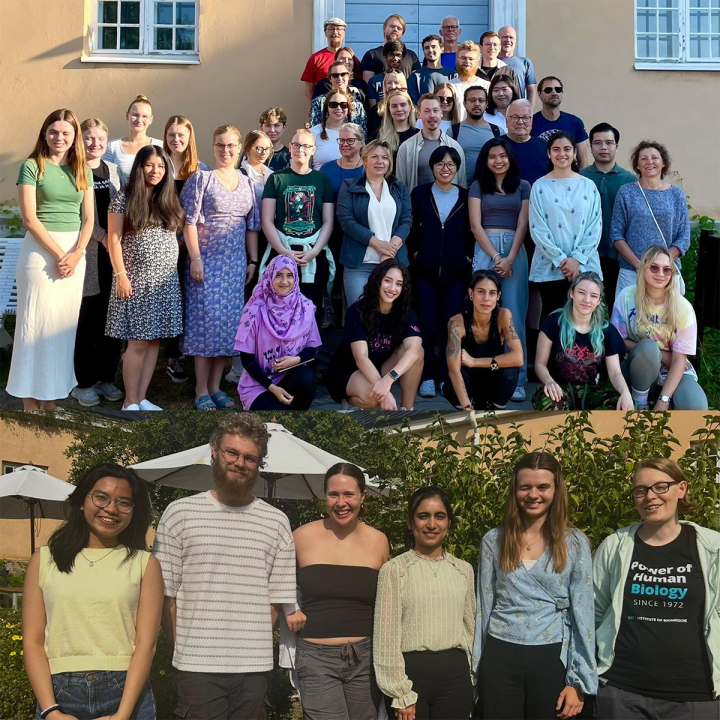
Keen to transform your learning journey?
Summer programmes like the Baltic Sea BioMed offer an experience that goes beyond traditional academics. They immerse you in real-world challenges, foster collaboration across disciplines, and create lasting cultural connections in a unique environment. Imagine stepping out of your comfort zone, gaining hands-on experience, and connecting with like-minded peers from around the world.
If you’re ready to elevate your studies, embrace new perspectives, and gain practical skills, an exchange programme could be your next big adventure. It’s a chance to grow not only as a student but as an individual, opening doors to opportunities you may never have considered. Take a step into the unknown—you never know what it might inspire!
Want to learn more? Discover more about the Nordplus Higher Education Programme and explore similar opportunities on their official website.
INFO: The Baltic Sea BioMed-2024 (BSBM-24) Summer School unfolded on Seili Island, a place renowned for its breathtaking natural beauty and rich historical significance. Hosted by the University of Turku and sponsored by the Nordplus Higher Education Programme, this intensive programme brought together students, mentors, and experts from universities across the Baltic region to explore the intersection of biomedical research and environmental science.
In 2024, six universities joined forces for BSBM-24: Karolinska Institutet, Syddansk Universitet, Vilniaus Universitetas, University of Eastern Finland, Åbo Akademi, and the University of Turku. Held from 5th to 9th August, the programme offered participants a unique blend of hands-on scientific research, interdisciplinary lectures, and an in-depth exploration of the environmental challenges facing the Baltic Sea.
The Nordplus Higher Education Programme is a networking and mobility initiative in the Nordic and Baltic countries for bachelor’s and master’s degree programmes. The primary focus of this programme is to ensure collaboration between higher education institutions that are part of it. This can be achieved through exchanges, shared experiences, best practices, and innovative outcomes.

